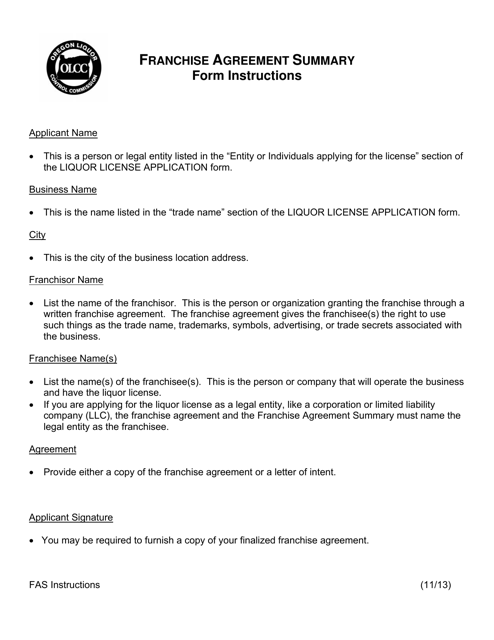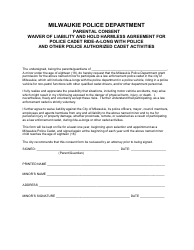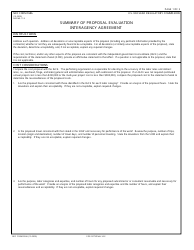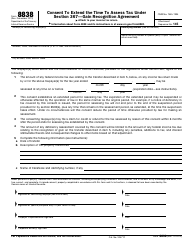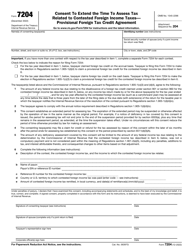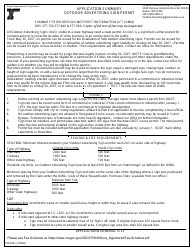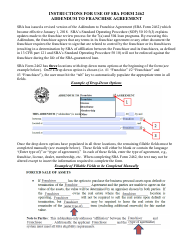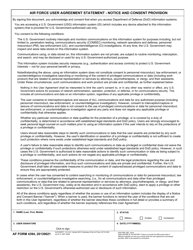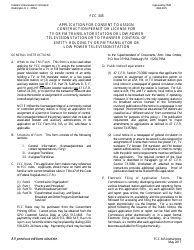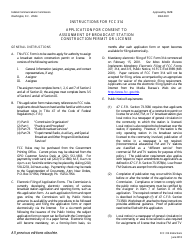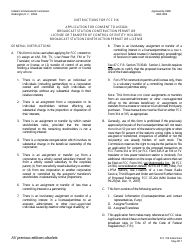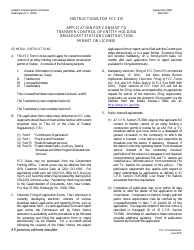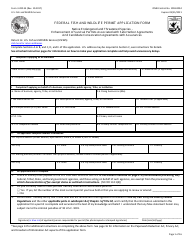Franchise Agreement Summary - Oregon
Franchise Agreement Summary is a legal document that was released by the Oregon Liquor and Cannabis Commission - a government authority operating within Oregon.
FAQ
Q: What is a franchise agreement?
A: A franchise agreement is a legally binding contract between a franchisor (the company that owns the franchise system) and a franchisee (the person or company that operates the franchise business).
Q: What does a franchise agreement include?
A: A franchise agreement typically includes important details such as the rights and responsibilities of both the franchisor and the franchisee, the term of the agreement, fees and royalties, territory restrictions, and operating guidelines.
Q: What are the rights and responsibilities of the franchisor?
A: The franchisor is responsible for providing the franchisee with a proven business system, training, marketing support, and ongoing guidance. They also have the right to enforce their brand standards and protect their trademarks.
Q: What are the rights and responsibilities of the franchisee?
A: The franchisee is responsible for operating the franchise business according to the franchisor's standards, paying franchise fees and royalties, and adhering to the terms of the agreement. They also have the right to use the franchisor's trademarks and benefit from their support.
Q: What fees are typically included in a franchise agreement?
A: Common fees in a franchise agreement include an initial franchise fee, ongoing royalty payments (usually a percentage of sales), and advertising fees.
Q: Are there territory restrictions in a franchise agreement?
A: Yes, a franchise agreement often includes territory restrictions to protect the franchisee's designated market area and prevent competition from other franchisees of the same brand.
Q: Can a franchise agreement be terminated?
A: Yes, a franchise agreement can be terminated if either party breaches the terms of the agreement, fails to meet performance standards, or for other specified reasons outlined in the agreement.
Q: Are franchise agreements regulated by law?
A: Yes, franchise agreements are subject to federal and state laws to ensure fairness and protection for both parties. It's important to consult with a legal professional to fully understand your rights and obligations before signing a franchise agreement.
Q: Can a franchisee sell their franchise business?
A: In most cases, yes. Franchise agreements typically include provisions that allow franchisees to sell their business, subject to certain conditions and approval from the franchisor.
Q: What happens at the end of the franchise agreement?
A: At the end of the franchise agreement term, the franchisee may have the option to renew the agreement or sell the business. The franchisor may also have the option to terminate or renew the agreement based on the franchisee's performance.
Form Details:
- Released on August 1, 2011;
- The latest edition currently provided by the Oregon Liquor and Cannabis Commission;
- Ready to use and print;
- Easy to customize;
- Compatible with most PDF-viewing applications;
- Fill out the form in our online filing application.
Download a fillable version of the form by clicking the link below or browse more documents and templates provided by the Oregon Liquor and Cannabis Commission.
